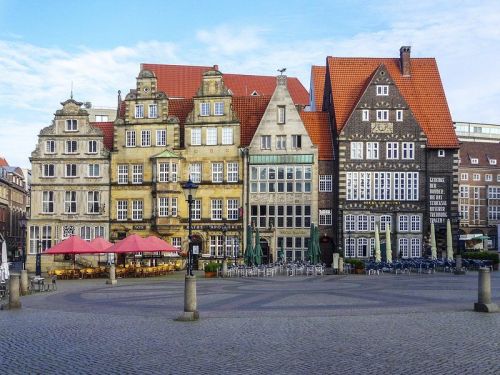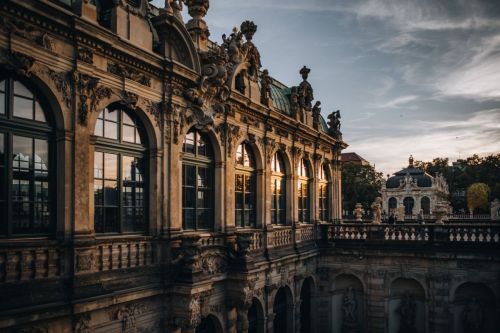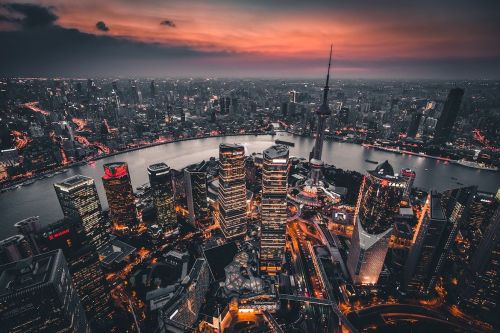Munich is Germany's southernmost large city. His coat of arms depicts a monk with raised arms in black robes. The choice of the symbol is not accidental, centuries before the city was officially founded, Christian monks lived in this area and were engaged in Bible studies, herbalism, and what Munich is most famous for - brewing beer.
Of the state's more than 13 million inhabitants, 1.48 million live in Munich. Munich is the third most populous city in Germany. The city exceeded the number of one million inhabitants in 1957.
In the times of the Roman Empire, there was a road near the city on which a Roman settlement was built.
The name comes from Celtic times, in that language isirás meant quick, fast, and strong. The river is 295 km long and flows into the Danube.
However, it is known that it existed earlier because fragments of pottery shards from the period preceding this date are found in the Munich region. In addition, on the site of today's St. Peter's Church, there was a church from the Merovingian era and thus from the 8th century.
The history of the square dates back to the 12th century, although it has been named only since 1807. Previously, it was called simply "Markth", which meant market, and then "Schrannenplatz", i.e. grain market. It gained its current name thanks to the Mariensäule column, which was erected on the market square in 1638 to celebrate the end of the Swedish occupation.
For almost 500 years it was called Nikolaimarkt in honor of Saint. Nicholas of Myra. In 1806 the name was changed to Christmarkt. Although its location was often changed in previous years, in 1972 it was moved to Marienplatz.
Since then, the city has developed dynamically and continues to this day.
Its history dates back to the 13th century and has always been one of the most frequented streets. The most expensive shops are located here and the cost of renting premises is the highest among all German streets. The cost of renting a square meter of premises exceeds €360.
It has the strongest economy among German cities and the lowest unemployment among cities with a million inhabitants. Most of the companies listed in the German DAX stock index come from Munich.
Today it is known as Bavaria Studios. There are 25 photo studios on 36 hectares belonging to the studio, and Alfred Hitchcock, Stanley Kubrick, Orson Welles, Jerzy Skolimowski and Oliver Stone shot their films here.
In the initial years, the company dealt exclusively with this branch of production and it produced its first motorcycle only in 1923, it was a BMW R 32. Bayerische Motoren Werke started producing cars only in 1928.
The city is the leader in the share of this means of transport among the largest German cities. Therefore, in the summer of 2010, Munich named itself Radlhauptstadt, which can be translated as the bicycle capital.
It is a beer festival that has been held in Munich since 1810. Although the name suggests that it takes place in October, it was only like that until 1871. The following year, the celebration of the holiday was moved to September. Oktoberfest is visited by approximately 6 million guests and approximately 5 million liters of beer are drunk during it.
In Munich, at Briennerstraße 45, the NSDAP leadership had its headquarters in the years 1930 - 1945, the building was called "Brown House" after the color of the uniforms in which NSDAP officers were dressed.
Since the beginning of the 2005/2006 season, Bayern Munich has played host games at the stadium, with Robert Lewandowski playing from 2014 to 2022.
This 38-story building is 146 meters high and houses 50.200 square meters of office space. The building was constructed between 2001 and 2004 and its construction cost amounted to €300 million.
In addition to the previously mentioned BMW, Siemens AG, MAN AG, MTU Aero Engines AG, Rohde & Schwarz, Osram, Flixbus and international corporations such as Microsoft and McDonald's have their headquarters here.
South of the city there are beautiful lakes such as Stamberg, Ammersee, Chiemesse, and Walchensee. These places are eagerly visited by city residents who find a break from everyday life there. Easy access to recreation areas is provided by the S-Bahn train network.
The highest peak of the range, Krottenkopf (2086 m above sea level) is located less than 80 km from the center of Munich.
The cinema was launched in 1907 and operated continuously until April 2019. Its founder was Carl Gabriel, an enthusiast of new technologies and "living images". He ran his facility until he died in 1931, and after him, the place was taken over by the Büche family, who showed films to viewers for the next four generations. The reason for closing this unique place was the difficult situation of the Büche family, which was forced to sell the building.
It was here that Munich Weisswurst was created in 1857 - a local white sausage, the pride of the city and the state. White sausages have been known since the 3rd century, but Munich Weisswurst is unique. We owe this masterpiece of Bavarian cuisine to the city's butcher, Sepp Moser.
The city has long been known for its sausages, which were eaten by wealthy Munich townspeople when the inhabitants of nearby villages had to make do with meatless dishes for economic reasons.
Weißbier is a beer in which barley malt is replaced with wheat malt, it has been produced for over 500 years. Helles is a light lager produced only since 1895, but it was liked by both residents and tourists and quickly replaced other beers, ranking first in the popularity ranking.












